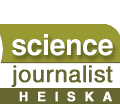 |
 |
 |
|
|
|
29.06.2006
Being lead-free means a challenge for the electronics industry
|
|||||||
 |
 |
| High resolution image (172 KB) Photo: Ilkka Tuokko |
Professor Aulis Tuominen of the University of Turku (left) and MR. Juhani Falck, Managing Director of Assy Oy are well up in the analysis of soldered joints. High resolution image (579 KB) Photo: Ilkka Tuokko |
As of July 2006 it will be prohibited in Europe to manufacture or import products in which traditional solder containing lead has been used to sold the electronic parts. In recent years companies have gradually shifted to lead-free solder.
Lead-free soldering requires higher temperatures than with conventional solder containing lead. Thus it has only been possible for some of the soldering machines of the electronics firms to join components using the new, lead-free solders. New machines cost from sixty to a hundred thousand Euros, making them a hefty acquisition for an SME.
At the Salo premises of the University of Turku an efficient system has been developed for monitoring and improving the quality of soldering work in electronics. The method is to be patented, and has already enabled several Finnish companies to improve the quality of their electronics production.
With the method developed soldered joints can be thoroughly and efficiently tested. Using the system guides the optimal choice of electronics parts for the soldering machine, likewise the best solders and solder pastes. The findings obtained suggest that soldering done with lead-containing and lead-free solders is on average equally reliable, but that the differences between different lead-free soldering machines and methods have been great.
The testing system recently won the Venture Cup business planning competition in the Turku region. The system is to be productised and commercialized in autumn.
Assy Oy of Perniö is a six-man strong manufacturer under contract of electronics products. With the help of the system developed by the University of Turku it ascertained for the first time the optimal alternatives and settings for its soldering machines and methods. Using the system has made it easier for the company to manufacture higher quality products than before, including the use of lead-free soldering methods. In addition to the testing the company also got to know about the average quality standards of other companies doing solder joints.
The testing system for soldered joints has been piloted on a lead-free soldering development project involving Aspocomp, Assy, Elcoteq, Kovotek, Muurlan Elektroniikka, Nokia, Partnertech, Powerfinn, Satel, Sincotron Finland, SP Scanpiiri, Teleste, Vansco and the universities of applied sciences (polytechnics) of Turku, Häme, Kajaani and Satakunta. This development project was coordinated by ICT Turku Oy and funded by TEKES and the participating companies.
More information: www.next.utu.fi
| University of Turku Professor Aulis Tuominen Tel. +358 45 630 2116 aulis.tuominen@utu.fi |
| ICT Turku Ltd Program Manager Kristiina Sunell Tel. +358 44 790 4921 kristiina.sunell@ictturku.com |
| Assy Ltd Managing Director Juhani Falck Tel. +358 40 035 2351 juhani.falck@co.inet.fi |
| [ main ] [ news ] [ suomeksi ] |